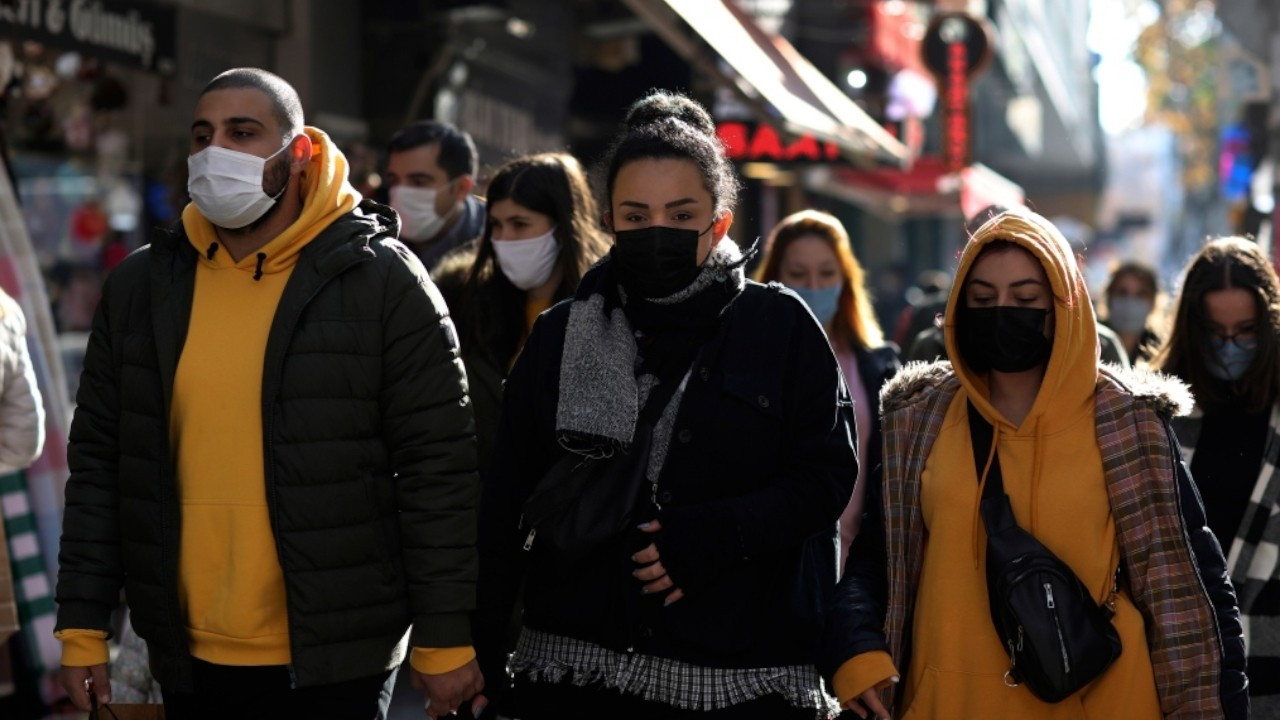Omicron could bring new pandemic restrictions to Turkey in January, experts say
So far, Turkey has been spared the pandemic restrictions that have come with the Omicron wave in Europe. However, there are rumors of pandemic restrictions for when the variant is expected to arrive in January.
Duvar English
The ultra-contagious Omicron variant of the coronavirus is sweeping the world, leading to renewed pandemic restrictions in many parts of Europe and North America. The variant is expected to become dominant in Turkey in January and officials are supposedly preparing renewed pandemic restrictions behind closed doors, according to reporting by daily BirGün.
So far, Turkey has been spared the surge that is battering Europe and North America. The number of active cases in Turkey has, according to official statistics, decreased below 300,000 for the first time in five months. For the last week, the positivity rate in Turkey has hovered around 5%. On December 19, the positivity rate was 4.8%.
For comparison, in New York City, the official positivity rate has tripled to near 8% in recent weeks, excluding increasingly popular rapid antigen tests. The Omicron variant is now the dominant strain of the virus in the U.S., climbing from 3% to 73% of cases in a week.
Experts are saying that the Omicron variant could be dominant in Turkey by January. As such, officials are rumored to be readying plans that could include requirements for PCR testing and stricter regulations in enclosed spaces. However, it is not expected that anything as extreme as the full lockdowns and closures implemented last year will come into force.
The primary way to fend off the more dire effects of the Omicron variant, experts say, is with vaccination and booster shots. 25 million people in Turkey, nearly one-third of the population, are currently under-vaccinated. Seven million people in the country - roughly 8.2% of the population - have not been vaccinated at all.
If people get a third (booster) shot of the vaccine, experts say that they are likely over 80% protected from infection by the Omicron variant. Turkey has recently reduced booster eligibility to three months after the second shot for all adults. As a result, Turkey has again seen an average of 850,000 new vaccinations every day for the past week.
Even if one has three shots, it is still possible to contract the Omicron variant. However, experts believe symptoms may be greatly decreased. Preliminary data from England and South Africa also suggests that hospitalizations and deaths from the variant may be lower than that for previous strains.

 Turkey detects six cases of Omicron variantCoronavirus
Turkey detects six cases of Omicron variantCoronavirus Omicron variant not detected in Turkey, says Health MinisterCoronavirus
Omicron variant not detected in Turkey, says Health MinisterCoronavirus Tunisia's first case of Omicron variant detected in passenger who traveled from TurkeyCoronavirus
Tunisia's first case of Omicron variant detected in passenger who traveled from TurkeyCoronavirus